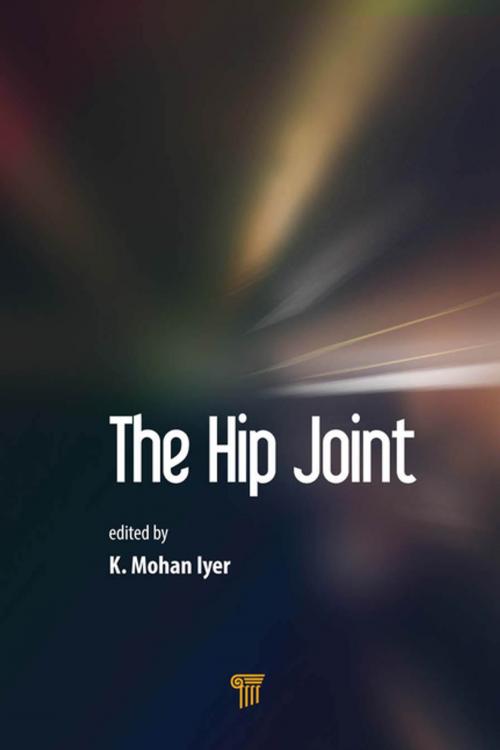The Hip Joint
Nonfiction, Science & Nature, Technology, Material Science, Health & Well Being, Medical, Surgery| Author: | K. Mohan Iyer | ISBN: | 9781315341019 |
| Publisher: | Jenny Stanford Publishing | Publication: | October 26, 2016 |
| Imprint: | Jenny Stanford Publishing | Language: | English |
| Author: | K. Mohan Iyer |
| ISBN: | 9781315341019 |
| Publisher: | Jenny Stanford Publishing |
| Publication: | October 26, 2016 |
| Imprint: | Jenny Stanford Publishing |
| Language: | English |
For centuries, orthopaedic surgeons have been managing the pain, limp, and gait disturbance that develop in association with various traumas and diseases of the hip joint. The hip is a ball-and-socket joint that has a good range of movement, but it is stable and rarely dislocates, even after high-impact trauma, and can withstand repeated motion and a fair amount of wear and tear. However, despite its durability, it is not indestructible. With age and use, the cartilage can wear down or become damaged. Overuse of muscles and tendons of the hip, for example, in athletes, leads to hip pain due to muscle strain or tendonitis. Other factors that can cause pain and lead to progressive arthritic changes include the abnormal anatomy a person is born with, conditions that develop during the growth and development of bones, and trauma as well as wear and tear due to ageing. The diagnosis and management of hip injuries have evolved substantially with advances in hip arthroscopy and diagnostic tools such as MRI and new, minimally invasive techniques.
This book provides a detailed account of the hip joint’s anatomy and biomechanics and serves as a practical guide for the diagnosis and treatment of hip diseases and injuries at all ages. The book covers recent trends in orthopaedic surgery of the hip joint, including the latest advances in revision total hip arthroplasty (THA), computer-assisted navigation for THA, resurfacing of the hip joint, neoplastic conditions around the hip, and indications, complications, and outcomes of hip arthroscopy. The chapters are written by experts who have contributed greatly to the understanding of problems of the hip joint. The book will be appreciated by undergraduate and postgraduate students, experienced hip surgeons, medical doctors, and practicing consultants in orthopaedics.
For centuries, orthopaedic surgeons have been managing the pain, limp, and gait disturbance that develop in association with various traumas and diseases of the hip joint. The hip is a ball-and-socket joint that has a good range of movement, but it is stable and rarely dislocates, even after high-impact trauma, and can withstand repeated motion and a fair amount of wear and tear. However, despite its durability, it is not indestructible. With age and use, the cartilage can wear down or become damaged. Overuse of muscles and tendons of the hip, for example, in athletes, leads to hip pain due to muscle strain or tendonitis. Other factors that can cause pain and lead to progressive arthritic changes include the abnormal anatomy a person is born with, conditions that develop during the growth and development of bones, and trauma as well as wear and tear due to ageing. The diagnosis and management of hip injuries have evolved substantially with advances in hip arthroscopy and diagnostic tools such as MRI and new, minimally invasive techniques.
This book provides a detailed account of the hip joint’s anatomy and biomechanics and serves as a practical guide for the diagnosis and treatment of hip diseases and injuries at all ages. The book covers recent trends in orthopaedic surgery of the hip joint, including the latest advances in revision total hip arthroplasty (THA), computer-assisted navigation for THA, resurfacing of the hip joint, neoplastic conditions around the hip, and indications, complications, and outcomes of hip arthroscopy. The chapters are written by experts who have contributed greatly to the understanding of problems of the hip joint. The book will be appreciated by undergraduate and postgraduate students, experienced hip surgeons, medical doctors, and practicing consultants in orthopaedics.















